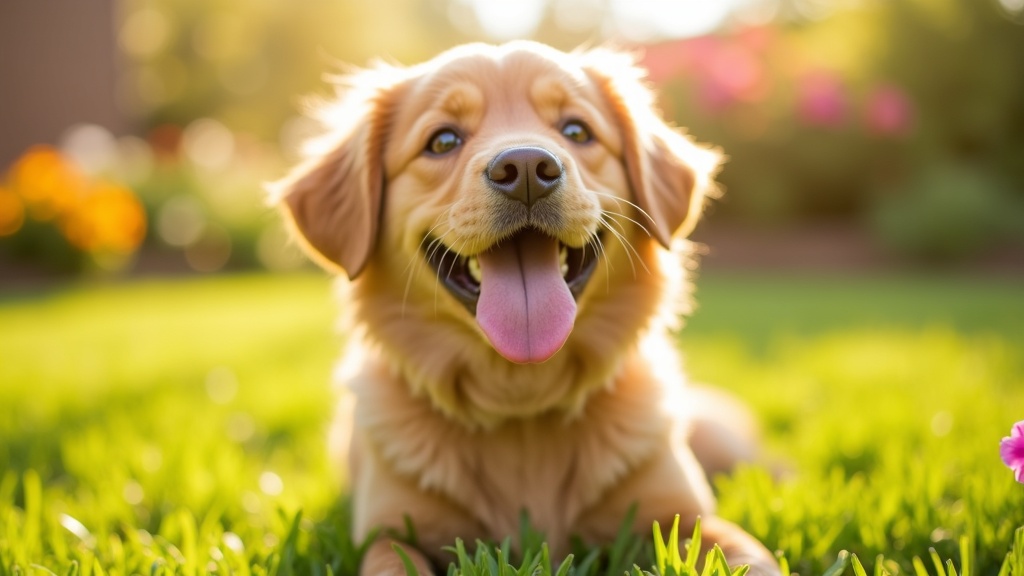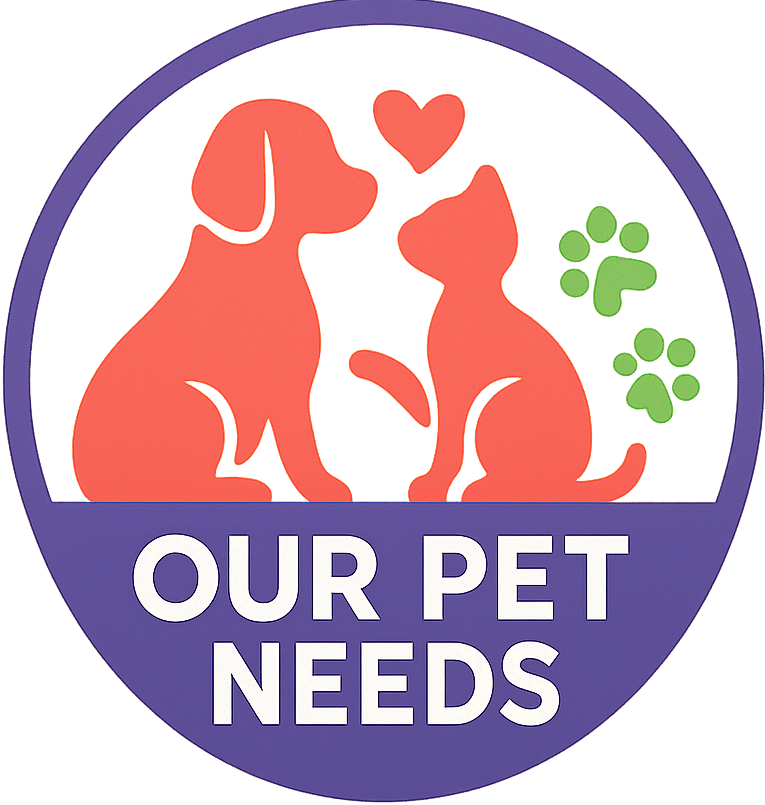Dog owners know that one of the quirkiest and sweetest things about having a dog is all the licking. Some pups seem to think their whole job in life is to cover us in slobbery kisses! If you’ve ever wondered, “Why does my dog lick me so much?” you’re definitely not alone. There are more reasons behind all that licking than most people realize. I’ll break down what could be behind your pup’s behavior and share a few tips that might help if the licking gets to be a little much for your taste.

Understanding Why Dogs Lick Their Humans
Licking is one of the first ways puppies interact with the world. Right from birth, puppies get licked by their moms for grooming, comfort, and bonding. Even as they get older, licking doesn’t usually stop. It just takes on new meanings. As a dog owner for years and someone who spends a lot of time working with rescue pups, I’ve seen a ton of different licking styles, from gentle nuzzles to full-on slobbery missions.
Dogs aren’t just using licking as a way to tell you they love you, although that’s definitely one part of it. For some pups, licking is a way to communicate, show affection, or even get your attention. The reasons behind a dog’s licks can be pretty wide ranging, so spotting patterns in your dog’s behavior helps decode what they actually want out of the exchange.
Main Reasons Dogs Lick Their Owners
If your dog is obsessed with licking you, these are some of the most common explanations I’ve seen:
- Affection: Licking is a classic way for dogs to show they’re attached to you. When your dog gives you a lick on the hand or face, it’s a pretty clear sign they’re comfortable and want to be close to you.
- Grooming: In the wild, dogs lick each other to help with grooming and social bonding. You might find that your dog tries to “clean” you after you get home or when you’re relaxing together.
- Communication: Dogs use licking to send messages. Sometimes, your dog might lick your hand to get your attention, get you to play, or just to say, “Hey, I’m here!”
- Seeking Taste: Human skin is salty! After exercise or on a warm day, sweat makes your skin taste even more interesting to a dog, so that could spark even more licking.
- Anxiety or Stress: Some dogs turn to excessive licking when they’re anxious, bored, or need comfort. Licking can have a self-soothing effect for them.
- Submission: In a dog pack, lowerranking dogs sometimes lick higherranking ones as a sign of submission. If your dog is really gentle and almost “apologetic” with licking, it could be a sign of respect or reassurance.
Spotting the Differences: How Context Affects Licking
Not all licking means the same thing. Here are a few clues that help figure out what your dog wants or feels:
- Licking With Tail Wagging: If your dog is wagging their tail and in a playful mood, the licking is usually all about excitement and affection.
- Calm, Gentle Licks: When your dog licks you slowly while lying next to you, they probably just want to bond and feel close.
- Intense, Repetitive Licking: Nonstop licking paired with pacing or whining might mean your dog is anxious, stressed out, or bored.
- Licking Certain Areas: Some dogs focus on one area, like your hands, feet, or even a spot with a cut, because they’re picking up scents, sweat, or minor wounds.
How Licking Connects to Your Relationship
Licking actually creates positive feelings for both you and your dog. When dogs lick, their bodies release endorphins that relax them and help them bond with you. If you pay attention to your dog after a lick—giving them a scratch behind the ears or talking sweetly—they remember that what they did got a good response.
This feedback loop strengthens your relationship. I’ve noticed that my dogs seem more eager to check in with me and spend time together after a good licking session, almost like it’s a friendship reset button.
Managing Excessive Licking (When It Feels Like Too Much)
Love your dog’s affection but starting to feel like a living chew toy? While licking is natural, it sometimes crosses into being a bit overwhelming or even a sign of an issue. Here are a few ways I’ve found useful for keeping licking from getting out of hand:
- Set Boundaries: If you don’t want your dog to lick you, gently redirect them with a toy or give them a command like “sit” or “down” when they start.
- Distract and Reward: Offer treats or a favorite chew when your dog makes eye contact or sits calmly instead of licking.
- Stick to Routines: Dogs often lick more when they’re bored or anxious. Sticking to a daily walk, play, or training schedule can help lower their stress and the urge to overlick.
- Check for Triggers: Notice if your dog licks more around certain people, in stressful situations, or when they’re left alone. Adjust routines or consult a trainer if needed.
- Visit the Vet: Excessive licking, not just of you but of paws or furniture, can sometimes be a medical issue (like allergies or anxiety). Your vet can rule out physical problems.
Setting compassionate limits helps both you and your dog feel comfortable and happy at home. You don’t have to “just put up with it”; there are kind ways to create a chill environment without losing your pup’s love.
Common Misconceptions About Dog Licking
I’ve heard all sorts of ideas about what dog licking means, but not all of them check out. Here are a few common myths:
- “A dog that licks a lot is spoiled or needy.” Not necessarily. Some breeds, like retrievers or spaniels, are lickhappy by nature. Plus, licking is just a behavior they’re born with.
- “Dog saliva heals wounds.” While dog saliva has some mild cleaning agents, it can also carry germs. It’s best to keep dog licks away from your own or their open cuts.
- “Only puppies lick people.” Adult dogs, and even seniors, can be big lickers! It’s not just a baby thing.
The Science Side: What Research Says About Licking
Scientific studies support what dog owners have noticed for years: licking is a built-in behavior with deep social roots. According to the American Kennel Club (AKC), licking helps dogs bond and gather information; sort of like a handshake, but tastier. Some researchers believe that licking is an evolutionary leftover from the days when wild dogs and wolves relied on licking to strengthen pack bonds and keep everyone healthy.
Interesting fact: in one study, scientists found that some dogs actually increased licking after their owners offered praise, which means our positive reactions encourage the behavior (source).
Dogs also use licking as a way to better understand the world around them. Their sense of taste and smell help them collect information from our skin, which is covered in unique scents, lotions, and even tiny traces of food. While it can sometimes seem like just another odd quirk, licking is a big part of how dogs get a feel for their surroundings and the people they care about. In family groups, licking has another role; mother dogs will lick their young for comfort and care, reinforcing strong emotional bonds. Even as adults, dogs remember this early nurturing, and that association is likely why your pup keeps up the habit with you.
FAQs: Quick Answers to Common Questions
I get these questions from dog lovers all the time:
Q: Is it okay for my dog to lick my face?
A: For most people, a little dog lick is harmless, but you’ll want to avoid it if you have cuts, a weakened immune system, or just aren’t comfortable with it. Always wash up after.
Q: Why does my dog lick my feet?
A: Feet are especially salty (especially after a workout) and have a bunch of unique scents. Dogs find that interesting, and they might just be saying “hi” in a way that makes sense to them.
Q: Can excessive licking be a problem?
A: If your dog seems obsessed with licking or gets upset when not allowed, it’s worth checking for anxiety, boredom, or even allergies. Asking a vet or dog trainer for advice can help.
Q: My dog never licks me; should I be worried?
A: Not really. Some dogs are just not big on licking, and they show affection in their own ways, like leaning against you or wagging their tails like mad.
Wrapping Up: Understanding and Enjoying Your Dog’s Licks
Having a dog who licks a lot is pretty normal, and in most cases, it’s just a sign that they really like you. Whether it’s gentle affection, a request for a snack, or just their way of checking in, licking is a big part of how dogs communicate. Understanding where your dog’s licking is coming from makes it easier to build a lasting bond and manage it if it ever gets out of hand. With a little patience and good boundaries, you and your pup can both enjoy the quirks that make dogs such lovable companions.
If you find your dog’s licking to be excessive or linked to anxiety, don’t be afraid to reach out for support from your vet or a professional trainer. Getting on top of the behavior early can help both you and your dog relax, enjoy time together, and keep your connection strong. Your bond with your pup is about more than just a few licks; it’s about understanding, respect, and enjoying every joyful, goofy moment you share.
